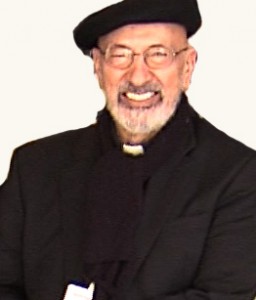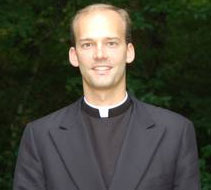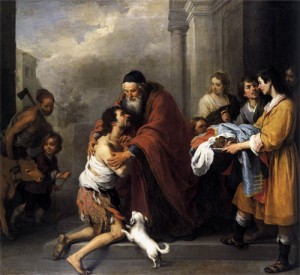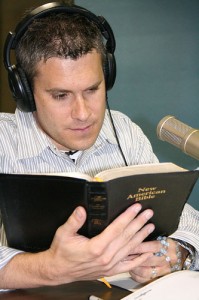Msgr. Esseff reflects on the readings for the 5th Sunday of Lent.  He discusses the mercy of God and our need to seek out forgiveness for our sins and the healing of our brokenness  What is key is that we must trust in the love of the Father and unite ourselves with the heart of Jesus Christ.
From the NAB
Gospel   JN 8:1-11
But early in the morning he arrived again in the temple area,
and all the people started coming to him,
and he sat down and taught them.
Then the scribes and the Pharisees brought a woman
who had been caught in adultery
and made her stand in the middle.
They said to him,
“Teacher, this woman was caught
in the very act of committing adultery.
Now in the law, Moses commanded us to stone such women.
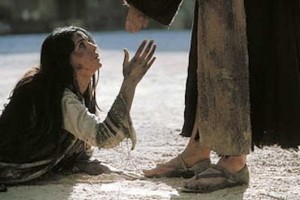
So what do you say?â€
They said this to test him,
so that they could have some charge to bring against him.
Jesus bent down and began to write on the ground with his finger.
But when they continued asking him,
he straightened up and said to them,
“Let the one among you who is without sin
be the first to throw a stone at her.â€
Again he bent down and wrote on the ground.
And in response, they went away one by one,
beginning with the elders.
So he was left alone with the woman before him.
Then Jesus straightened up and said to her,
“Woman, where are they?
Has no one condemned you?â€
She replied, “No one, sir.â€
Then Jesus said, “Neither do I condemn you.
Go, and from now on do not sin any more.â€
Msgr. John A. Esseff is a Roman Catholic priest in the Diocese of Scranton. He was ordained on May 30th 1953, by the late Bishop William J. Hafey, D.D. at St. Peter’s Cathedral in Scranton, PA. Msgr. Esseff served a retreat director and confessor to Blessed Mother Teresa.   He continues to offer direction and retreats for the sisters of the missionaries of charity around the world. Msgr. Esseff encountered St.  Padre Pio,  who would become a spiritual father to him. He has lived in areas around the world,  serving  in the Pontifical missions, a Catholic organization established by Bl. Pope John Paul II to bring the Good News to the world especially to the poor. Msgr. Esseff assisted the founders of the Institute for Priestly Formation and continues to serve as a spiritual director for the Institute. He continues to  serve as a retreat leader and director to bishops, priests and sisters and seminarians and other religious leaders around the world.  Â
To obtain a copy of Msgr. Esseff’s book by visiting here
Be sure to visit Msgr. Esseff’s website “Building a Kingdom of  Love”
Tags: forgiveness, jesus christ, John Esseff, mercy
This entry was posted on Sunday, March 17th, 2013 at 10:19 am
You can follow any responses to this entry through the RSS 2.0 feed.
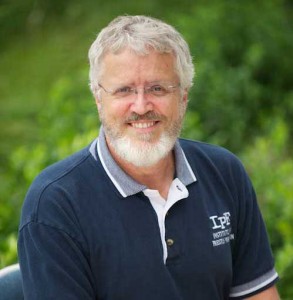 Episode 5 -Stations of the Cross: Reflections with Deacon James Keating –
Episode 5 -Stations of the Cross: Reflections with Deacon James Keating –
The Stations of the Cross – one of the most powerful devotionals alive in the heart of the Church. Reflecting and deeply meditating on the Passion of the Christ, Deacon Keating guides us through the 12th station (Jesus dies on the Cross), the 13th station (Jesus taken down from the Cross and laid in the arms of His mother), and the 14th station (Jesus is placed in the tomb) along the Way of the Cross.
[powerpress]
For other episodes in the “Stations of the Cross” series click here
Deacon James Keating, PhD, the director of Theological Formation for the Institute for Priestly Formation, located at Creighton University, in Omaha, is making available to â€Discerning Hearts†and all who listen, his series of programs entitled “Stations of the Cross: Reflections with Deacon James Keatingâ€.
For more information on the “Institute of Priestly Formation†and for other material available by Deacon Keating, just click here
Don’t forget to pickup a copy of “Communion with Christ†,it is one of the best audio sets on prayer…ever!
Check out Deacon Keating’s “Discerning Heart†page
Tags: creighton university, Deacon James Keating, Deacon Keating, Jesus
This entry was posted on Saturday, March 16th, 2013 at 4:50 am
You can follow any responses to this entry through the RSS 2.0 feed.
[powerpress]
From Vatican Radio: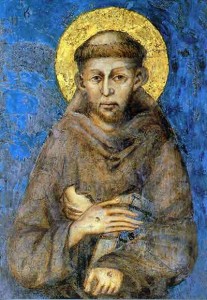
The 265th Successor of Peter has taken the name Francis. He hasn’t yet told us why but one presumes it’s after Saint Francis who was born in Assisi, an Umbrian hilltop town in 1181.
Saint Francis is “the one saint whom all generations have succeeded in canonising” and is probably the best known saint in the whole calendar.
The 19th century French Protestant writer Ernest Renan , declared that ” after Jesus, he was the only perfect Christian . Blessed ” Pope Pius IX , in an encyclical celebrating the 7th centenary of the death of Saint Francis said the same.
“Whether or not Francis was the one and only perfect Christian ” comments biographer Abbé Englebert, “he was certainly the only Christian to take Christ quite literally at his word. Noone else has ever dared to do so .”
Perhaps Thomas Merton comes closest to the truth when he says: ” merely to know Saint Francis is to understand the Gospel in all its fullnes.”
What we know is that Francis was praying one day in the little ruined chapel of San Damiano. Suddenly the figure of Christ on the Crucifix called out to him…”Francis, go and repair my house, which as you see is falling into ruin.”…..
Tags: French Protestant, Saint Francis, san damiano, st francis of assisi, vatican radio
This entry was posted on Saturday, March 16th, 2013 at 4:10 am
You can follow any responses to this entry through the RSS 2.0 feed.
FG#3 – Interior Freedom episode 3- Fountains of Grace: reflections on contemporary spiritual classics with Donna Garrett
Join host Donna Garrett, with Fr. Daniel Brandenburg, LC, as they discuss the spiritual classic “Interior Freedom” by Fr.  Jacques Philippe  a priest of  Communaute des Beatitudes, an international association of the faithful of Pontifical Right founded in France in 1973.  The members of the Community, which has a contemplative vocation based on Carmelite spirituality, are actively engaged in the service of the poor and the proclamation of the Gospel.
[powerpress]
Discussed in this episode, among other topics, Â from “Interior Freedom” page 66
“ Freedom can be diminished by a dependence on someone whom we love too much(and in the wrong way) who becomes so indispensable to us that we partly lose our autonomy. But a refusal to forgive also binds us to the person we resent, and diminishes or destroys our freedom. we are as dependent on the people we hate as on those we love in a disproportionate manner. When we foster resentment toward someone, we can’t stop thinking about him. We are filled with negative feelings that absorb a large part of our energy, and so there is an “investment” in that relationship that does not leave us available, psychologically and spiritually, for what we should be concentrating on. Resentment attacks our vital forces and does us much harm. When someone has made us suffer, our tendency is to keep the memory of the wrong alive in our minds, like a ‘bill” we will produce in due time to demand settlement. Those accumulated bills end up poisoning our lives. It is wiser to cancel every debt, as the Gospel invites us to. In return, we will be forgiven everything, and our hearts will be set free, whereas nurturing resentment toward others closes us to positive things they could contribute to us.”
For other episodes in the this series click here “Fountains of Grace w/Donna Garrett”

You can find “Interior Freedom” here
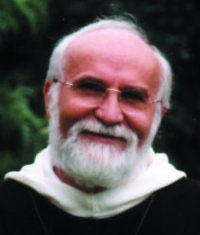
Fr. Jacques Philippe
.
Tags: Donna Garrett, Interior Freedom, reflections, resentment
This entry was posted on Friday, March 15th, 2013 at 6:38 pm
You can follow any responses to this entry through the RSS 2.0 feed.
The New Evangelization, during this Year of Faith, has experienced an incredible moment with the Papal Conclave convened to elect the 265th successor to St. 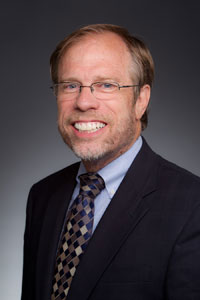 Peter!  We had a chance to talk with someone on the ground covering this historic moment first hand…Gregory Erlandson.  As Publisher and President of the Our Sunday Visitor Publishing Division, Greg brings incredible insight on what is occurring at this historic moment having spent years in Rome reporting on the activities of our universal Church.  In our conversation, we discuss the unprecedented numbers of  media outlets from around the world covering the event and what that might mean for the New Evangelization.  Is there an “American Moment” occurring at this conclave as some suggest, and if so, what could this unexpected influence have on the Papal Election and the Church around the world?  Gregory Erlandson, besides being one of the wisest (as well as nicest) men I know,  is truly a balanced seeker of truth and a master communicator of the beauty offered by our Catholic faith…no hype here, but always with an encouraging call to deeper prayer and trust.
Peter!  We had a chance to talk with someone on the ground covering this historic moment first hand…Gregory Erlandson.  As Publisher and President of the Our Sunday Visitor Publishing Division, Greg brings incredible insight on what is occurring at this historic moment having spent years in Rome reporting on the activities of our universal Church.  In our conversation, we discuss the unprecedented numbers of  media outlets from around the world covering the event and what that might mean for the New Evangelization.  Is there an “American Moment” occurring at this conclave as some suggest, and if so, what could this unexpected influence have on the Papal Election and the Church around the world?  Gregory Erlandson, besides being one of the wisest (as well as nicest) men I know,  is truly a balanced seeker of truth and a master communicator of the beauty offered by our Catholic faith…no hype here, but always with an encouraging call to deeper prayer and trust.
[powerpress]
 From Greg’s blog posting at the OSV Blog:
From Greg’s blog posting at the OSV Blog:
So, what are the chances that we will have an American pope? If the forecasts are correct (a big if), and if the received wisdom is at all wise, the American options become more likely if the first ballots do not signal a clear front-runner – Cardinals Angelo Scola, Odilo Scherer and Marc Ouellet perhaps – capable of winning two-thirds of the votes.
ÂWhat dramas play out in the Sistine Chapel and in the conversations taking place back in the cardinals’ “hotel” we may not find out for months, but Vatican observers, for perhaps the first time ever, are not discounting the Americans, and that in itself is a big deal.
Tags: American Moment, Church, Gregory Erlandson, osv, sistine chapel
This entry was posted on Tuesday, March 12th, 2013 at 6:56 pm
You can follow any responses to this entry through the RSS 2.0 feed.
Msgr. Esseff reflects on the readings for the 4th Sunday of Lent.  He discusses  the Sacrament of Reconciliation and how it’s key in the area of true inner healing.  The healing from the damage done by our sinful choices is more important than even physical healing.  He implores us all to see the value of this tremendous gift.
From the NAB
Gospel LK 15:1-3, 11-32
Tax collectors and sinners were all drawing near to listen to Jesus,
but the Pharisees and scribes began to complain, saying,
“This man welcomes sinners and eats with them.â€
So to them Jesus addressed this parable:
“A man had two sons, and the younger son said to his father,
‘Father give me the share of your estate that should come to me.’
So the father divided the property between them.
After a few days, the younger son collected all his belongings
and set off to a distant country
where he squandered his inheritance on a life of dissipation.
When he had freely spent everything,
a severe famine struck that country,
and he found himself in dire need.
So he hired himself out to one of the local citizens
who sent him to his farm to tend the swine.
And he longed to eat his fill of the pods on which the swine fed,
but nobody gave him any.
Coming to his senses he thought,
‘How many of my father’s hired workers
have more than enough food to eat,
but here am I, dying from hunger.
I shall get up and go to my father and I shall say to him,
“Father, I have sinned against heaven and against you.
I no longer deserve to be called your son;
treat me as you would treat one of your hired workers.â€â€™
So he got up and went back to his father.
While he was still a long way off,
his father caught sight of him, and was filled with compassion.
He ran to his son, embraced him and kissed him.
His son said to him,
‘Father, I have sinned against heaven and against you;
I no longer deserve to be called your son.’
But his father ordered his servants,
‘Quickly bring the finest robe and put it on him;
put a ring on his finger and sandals on his feet.
Take the fattened calf and slaughter it.
Then let us celebrate with a feast,
because this son of mine was dead, and has come to life again;
he was lost, and has been found.’
Then the celebration began.
Now the older son had been out in the field
and, on his way back, as he neared the house,
he heard the sound of music and dancing.
He called one of the servants and asked what this might mean.
The servant said to him,
‘Your brother has returned
and your father has slaughtered the fattened calf
because he has him back safe and sound.’
He became angry,
and when he refused to enter the house,
his father came out and pleaded with him.
He said to his father in reply,
‘Look, all these years I served you
and not once did I disobey your orders;
yet you never gave me even a young goat to feast on with my friends.
But when your son returns
who swallowed up your property with prostitutes,
for him you slaughter the fattened calf.’
He said to him,
‘My son, you are here with me always;
everything I have is yours.
But now we must celebrate and rejoice,
because your brother was dead and has come to life again;
he was lost and has been found.’â€
Msgr. John A. Esseff is a Roman Catholic priest in the Diocese of Scranton. He was ordained on May 30th 1953, by the late Bishop William J. Hafey, D.D. at St. Peter’s Cathedral in Scranton, PA. Msgr. Esseff served a retreat director and confessor to Blessed Mother Teresa.   He continues to offer direction and retreats for the sisters of the missionaries of charity around the world. Msgr. Esseff encountered St.  Padre Pio,  who would become a spiritual father to him. He has lived in areas around the world,  serving  in the Pontifical missions, a Catholic organization established by Bl. Pope John Paul II to bring the Good News to the world especially to the poor. Msgr. Esseff assisted the founders of the Institute for Priestly Formation and continues to serve as a spiritual director for the Institute. He continues to  serve as a retreat leader and director to bishops, priests and sisters and seminarians and other religious leaders around the world.  Â
To obtain a copy of Msgr. Esseff’s book by visiting here
Be sure to visit Msgr. Esseff’s website “Building a Kingdom of  Love”
Tags: choices, inner healing, John Esseff, NAB
This entry was posted on Sunday, March 10th, 2013 at 3:20 pm
You can follow any responses to this entry through the RSS 2.0 feed.
 Episode 4 -Stations of the Cross: Reflections with Deacon James Keating –
Episode 4 -Stations of the Cross: Reflections with Deacon James Keating –
The Stations of the Cross – one of the most powerful devotionals alive in the heart of the Church. Reflecting and deeply meditating on the Passion of the Christ, Deacon Keating guides us through the 9th station (Jesus fall a 3rd time), the 10th station (Jesus is stripped of His garments), and the 11th station (Jesus is nailed to the Cross) along the Way of the Cross.
[powerpress]
For other episodes in the “Stations of the Cross” series click here
Deacon James Keating, PhD, the director of Theological Formation for the Institute for Priestly Formation, located at Creighton University, in Omaha, is making available to â€Discerning Hearts†and all who listen, his series of programs entitled “Stations of the Cross: Reflections with Deacon James Keatingâ€.
For more information on the “Institute of Priestly Formation†and for other material available by Deacon Keating, just click here
Don’t forget to pickup a copy of “Communion with Christ†,it is one of the best audio sets on prayer…ever!
Check out Deacon Keating’s “Discerning Heart†page
Tags: creighton university, Deacon James Keating, Deacon Keating, Jesus
This entry was posted on Friday, March 8th, 2013 at 10:25 am
You can follow any responses to this entry through the RSS 2.0 feed.
Mark breaks open The TEN COMMANDMENTS–
[powerpress]
The Sixth Commandment:
YOU SHALL NOT COMMIT ADULTERY.
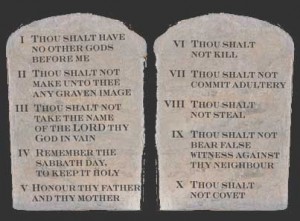
Mark Hart is an author, speaker, director and teacher, Mark’s work both written and spoken, is known across the country and world. While he serves as the Vice President of LIFE TEEN, he is known to tens of thousands simply as the “Bible Geek ®†Mark passionately echoes the gospel to all he encounters. He is as deep as he is funny, and his love for his wife and daughters is second only to his immense love for Jesus Christ.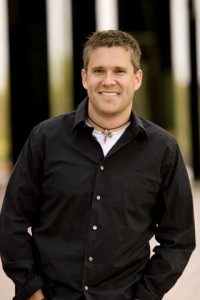
Visit Mark at www.lifeteen.com
Tags: 6th commandment, jesus christ, love, mark hart, work
This entry was posted on Friday, March 8th, 2013 at 3:15 am
You can follow any responses to this entry through the RSS 2.0 feed.
From Dr. Anthony Lilles’ blog “Beginning to Pray”
There are times when prayer feels wasted. Â We cry out from the very depths of our being begging to be heard, sometimes in tears, sometimes in desperate plight, sometimes with an overwhelming sense of personal unworthiness. Â Sometimes, when some sign of Divine Providence is most sought, our voices echo in lifeless silence.
In these moments, those who doubted our faith or considered us hypocrites, they feel themselves vindicated – sometimes with glee, sometimes with hidden sorrow. Â Here, the seemingly unanswered prayer mysteriously resounds in their hearts too. Â Behind the derision one faces for having dared to believe, there is also a painful solidarity with the whole of humanity. Â For every prayer that seems unanswered reaffirms a sense of alienation, of rejection, of unbearable misery in the heart of every man and woman since Eden.
In the story of salvation, the most contemporary doubt in the Father’s love is just another manifestation of this primordial reality. Â Christian prayer does not avoid this common human condition – it boldly enters this poverty to fill it with something new. Â If it humbly accepts all forms of mockery before the mystery of unanswered prayer, it is to offer this too as a living sacrifice to the Living God.
For the Christian, the tired sorrow of unanswered prayer has been made open to an explosive beatitude. Â The Word of the Father made this painful cry His own when He implicated Himself in our sin. Â In this, the Suffering Servant found a way so that we would not have to suffer our plight alone – our wounds are healed by His.
His last wordless cry of abandonment revealed His life’s project: He dared to offer with love to the Father His every breathe and heartbeat from first to last so that every human hardship might be completely enveloped in divine mercy. Â Now, by faith, His project can become our project. Â Because His offering to the Father was perfect in love, the Savior of the world fills our dying weakness with the secret freshness of new life whenever we offer it to Him with even the tiniest effort of solidarity. Â When prayer seems unanswered, the One who cried to the Father for love of us from crib to Cross is allowing us an opportunity to share in the salvific work of His own prayer.
Like the myrrh, the tears and the kisses that once anointed the feet of Jesus, prayer wasted on God for our brothers and sisters, for spouse and children, and even for ourselves, always takes on cruciform proportions – dimensions that extend from one horizon to the other, from height to depth, from what is visible to what cannot be seen. Â If such prayer weeps over abandonment, disappointment, frustration, injustice, inadequacy, failure, voids and weakness – such prayer also boldly cleaves with gratitude to the invincible hope that none of this can separate us from that astounding love revealed by the Risen Lord.
Dr. Anthony Lilles is the author of “Hidden Mountain, Secret Garden”
Available at Amazon.com as an ebook (click here), a paperback edition (click here).  You may also order a paperback edition at createspace.com.
Tags: Anthony Lilles, faith, heart, joy, love, prayer, reflection, solidarity
This entry was posted on Thursday, March 7th, 2013 at 12:35 pm
You can follow any responses to this entry through the RSS 2.0 feed.
FG#2 – Interior Freedom episode 2- Fountains of Grace: reflections on contemporary spiritual classics with Donna Garrett
Join host Donna Garrett, with Fr. Daniel Brandenburg, LC, as they discuss the spiritual classic “Interior Freedom” by Fr.  Jacques Philippe  a priest of  Communaute des Beatitudes, an international association of the faithful of Pontifical Right founded in France in 1973.  The members of the Community, which has a contemplative vocation based on Carmelite spirituality, are actively engaged in the service of the poor and the proclamation of the Gospel.
[powerpress]
Discussed in this episode, among other topics, Â from “Interior Freedom” page 42
“Sometimes we tend to forbid ourselves some wholesome aspiration, some accomplishment, or legitimate happiness. A subconscious psychological mechanism makes us deny ourselves happiness out of a sense of guilt or it may come from a false idea of God’s will, as if we ought to deprive ourselves systematically of everything good in life! In either case, it has nothing to do with genuine spiritual realism and acceptance of our own limitations. God sometimes calls us to make sacrifices but he also sets us free from fears and false sense of imprisoning guilt. He restores to us the freedom to welcome whatever good and pleasant things he wants to give us in order to encourage and show us his tenderness.”
For other episodes in the this series click here “Fountains of Grace w/Donna Garrett”

You can find “Interior Freedom” here

Fr. Jacques Philippe
Tags: Donna Garrett, happiness, Interior Freedom, reflections
This entry was posted on Thursday, March 7th, 2013 at 11:18 am
You can follow any responses to this entry through the RSS 2.0 feed.
I so enjoyed my conversation with Dr. Lawrence Cunningham.  In his book, “The Seven Deadly Sins: A 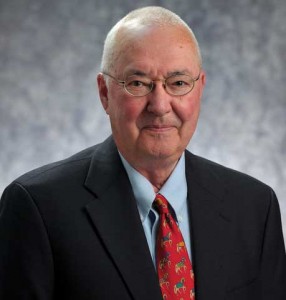 Visitor’s Guide“, Dr. Cunningham draws from the wisdom of  the mystical desert fathers.  He offers us insight on sloth, envy, gluttony, greed, anger, lust and pride – how they were first identified as the “deadly”sins, what they might look like in today’s world, and how corresponding virtues can counter their destructive tendencies.  A fascinating read!
Visitor’s Guide“, Dr. Cunningham draws from the wisdom of  the mystical desert fathers.  He offers us insight on sloth, envy, gluttony, greed, anger, lust and pride – how they were first identified as the “deadly”sins, what they might look like in today’s world, and how corresponding virtues can counter their destructive tendencies.  A fascinating read!
[powerpress]
You can find the book here
“At a time when invective poses as ‘straight talk,’ and the rant replaces reasoned discourse, Lawrence Cunningham’s brilliant new meditation on the Seven Deadly Sins is pure gift. Moral confusion may be the defining weakness of our era, but here is a book that can lead us back to the light.”–Paula Huston, Author of Simplifying the Soul
Tags: 7 deadly sins, Lawrence Cunningham, Seven Deadly Sins
This entry was posted on Wednesday, March 6th, 2013 at 3:20 pm
You can follow any responses to this entry through the RSS 2.0 feed.
This is such an interesting conversation Bruce and I had with author John Salza! Â We discussed this time around, “The Biblical Basis for the Papacy”. Â Fascinating.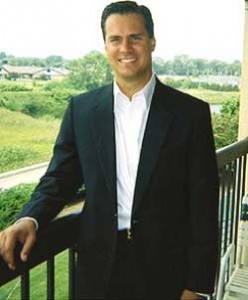
[powerpress]
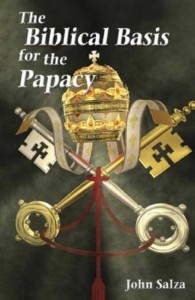 You can purchase the book here
You can purchase the book here
From the book description:
The Roman Catholic Papacy is the longest-living institution in the Western World – and at times one of the most controversial due to the basic doctrines of: Papal Authority, Papal Infallibility and Apostolic Succession. Drawing upon Old and New Testament Scripture, Tradition, and the words of the Early Church Fathers, author and noted Catholic apologist John Salza presents a comprehensive and compelling story of the office of the papacy from a biblical perspective. Arguments against the papacy are weighed and refuted in a charitable but convincing manner, making this a valuable resource for everyone intrigued or confused by the nearly 2,000 year old papal office – regardless of your faith background. Whether you are defending, questioning or exploring the Catholic Faith, this book provides the most concise and clear examination of the Catholic Church’s supreme teaching office as instituted by Christ, Our Lord and Savior.
Tags: catholic church, early church fathers, john salza, papacy
This entry was posted on Sunday, March 3rd, 2013 at 3:37 pm
You can follow any responses to this entry through the RSS 2.0 feed.
 Episode 3 -Stations of the Cross: Reflections with Deacon James Keating – The Stations of the Cross – one of the most powerful devotionals alive in the heart of the Church. Reflecting and deeply meditating on the Passion of the Christ, Deacon Keating guides us through the 6th station (Veronica wipes the face of Jesus), the 7th station (Jesus falls a 2nd time), and the 8th station (Jesus encounters the women of Jerusalem) along the Way of the Cross. For other episodes in the “Stations of the Cross” series click here Deacon James Keating, PhD, the director of Theological Formation for the Institute for Priestly Formation, located at Creighton University, in Omaha, is making available to â€Discerning Hearts†and all who listen, his series of programs entitled “Stations of the Cross: Reflections with Deacon James Keatingâ€.
Episode 3 -Stations of the Cross: Reflections with Deacon James Keating – The Stations of the Cross – one of the most powerful devotionals alive in the heart of the Church. Reflecting and deeply meditating on the Passion of the Christ, Deacon Keating guides us through the 6th station (Veronica wipes the face of Jesus), the 7th station (Jesus falls a 2nd time), and the 8th station (Jesus encounters the women of Jerusalem) along the Way of the Cross. For other episodes in the “Stations of the Cross” series click here Deacon James Keating, PhD, the director of Theological Formation for the Institute for Priestly Formation, located at Creighton University, in Omaha, is making available to â€Discerning Hearts†and all who listen, his series of programs entitled “Stations of the Cross: Reflections with Deacon James Keatingâ€.  [powerpress]
[powerpress] 
For more information on the “Institute of Priestly Formation†and for other material available by Deacon Keating, just click here
Don’t forget to pickup a copy of “Communion with Christ†,it is one of the best audio sets on prayer…ever!
Check out Deacon Keating’s “Discerning Heart†page
Tags: creighton university, Deacon James Keating, Deacon Keating, Jesus
This entry was posted on Sunday, March 3rd, 2013 at 2:37 pm
You can follow any responses to this entry through the RSS 2.0 feed.
Msgr. Esseff offers insights on the readings for the 4th Sunday of Lent.  It calls for 100% surrender to love.  Repentance is key… repentance 100% .
From the NAB  Gospel  LK 13:1-9
whose blood Pilate had mingled with the blood of their sacrifices.
Jesus said to them in reply,
“Do you think that because these Galileans suffered in this way
they were greater sinners than all other Galileans?
By no means!
But I tell you, if you do not repent,
you will all perish as they did!
Or those eighteen people who were killed
when the tower at Siloam fell on them—
do you think they were more guilty
than everyone else who lived in Jerusalem?
By no means!
But I tell you, if you do not repent,
you will all perish as they did!â€And he told them this parable:
“There once was a person who had a fig tree planted in his orchard,
and when he came in search of fruit on it but found none,
he said to the gardener,
‘For three years now I have come in search of fruit on this fig tree
but have found none.
So cut it down.
Why should it exhaust the soil?’
He said to him in reply,
‘Sir, leave it for this year also,
and I shall cultivate the ground around it and fertilize it;
it may bear fruit in the future.
If not you can cut it down.’â€
Msgr. John A. Esseff is a Roman Catholic priest in the Diocese of Scranton. He was ordained on May 30th 1953, by the late Bishop William J. Hafey, D.D. at St. Peter’s Cathedral in Scranton, PA. Msgr. Esseff served a retreat director and confessor to Blessed Mother Teresa.   He continues to offer direction and retreats for the sisters of the missionaries of charity around the world. Msgr. Esseff encountered St.  Padre Pio,  who would become a spiritual father to him. He has lived in areas around the world,  serving  in the Pontifical missions, a Catholic organization established by Bl. Pope John Paul II to bring the Good News to the world especially to the poor. Msgr. Esseff assisted the founders of the Institute for Priestly Formation and continues to serve as a spiritual director for the Institute. He continues to  serve as a retreat leader and director to bishops, priests and sisters and seminarians and other religious leaders around the world.  Â
To obtain a copy of Msgr. Esseff’s book by visiting here
Be sure to visit Msgr. Esseff’s website “Building a Kingdom of  Love”
Tags: John Esseff, love, retreat, Roman Catholic
This entry was posted on Sunday, March 3rd, 2013 at 2:25 pm
You can follow any responses to this entry through the RSS 2.0 feed.
Thomas Craughwell in,  “Popes Who Resigned: Benedict Xvi and 13 Other Popes Who Retired (or Were Deposed)“, has once again proven why his writing is so fascinating and enjoyable. He never shys away from the uncomfortable fact. He presents the information with the peace and good humor which comes from the hindsight afforded by history and a knowledge of a God who eventually brings all things into in order despite his earthly children’s  best efforts to mess things up. We can learn much from a particular moment or action of human behavior in the curse of human history, and with Thomas Craughwell’s keen eye not much is missed. In this particular case, we can rest assured that the Barque of St. Peter sails the seas of human history helmed by the Holy Spirit more than by the hands of man, otherwise it would of crashed on the seashore of time long ago.
afforded by history and a knowledge of a God who eventually brings all things into in order despite his earthly children’s  best efforts to mess things up. We can learn much from a particular moment or action of human behavior in the curse of human history, and with Thomas Craughwell’s keen eye not much is missed. In this particular case, we can rest assured that the Barque of St. Peter sails the seas of human history helmed by the Holy Spirit more than by the hands of man, otherwise it would of crashed on the seashore of time long ago.
[powerpress]
The stories contained here are short and to the point, each representing a fascinating period in Church history. I appreciated his insights on the unique circumstances and personalities of Bl. John Paul Ii and Pope Benedict XVI, and why each chose the course they took in regards to their decisions to either remain or leave their role as Supreme Pontiff.
I am a big fan of Thomas Craughwell’s work…I wasn’t disappointed.
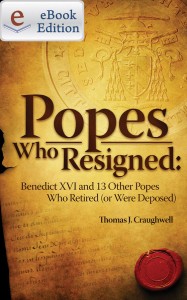 You can obtain the book here
You can obtain the book here
From the book description:
On February 11, 2013, Pope Benedict XVI shocked Catholics and the world by announcing that he would resign from the papacy. It was the first papal resignation in 600 years, and it has caused Catholics the world over to scramble for answers. Now, in Popes Who Resigned, Thomas J. Craughwell answers those burning questions, including:
– Why did Benedict XVI resign… and why didn’t John Paul II?
– What does the Catholic Church teach about papal resignation?
– Who were the other popes that resigned, and why?
– And much more.
In these tumultuous times, Craughwell points even now to the rock that is the Catholic Church, digging into Canon law and Church history for answers. Popes Who Resigned is a must read for Catholics and non-Catholics alike who are trying to make sense of Benedict XVI’s resignation and what it means for the papacy, the Church, and the world.
Tags: catholic church, Church, holy spirit, Thomas Craughwell
This entry was posted on Thursday, February 28th, 2013 at 11:55 am
You can follow any responses to this entry through the RSS 2.0 feed.

